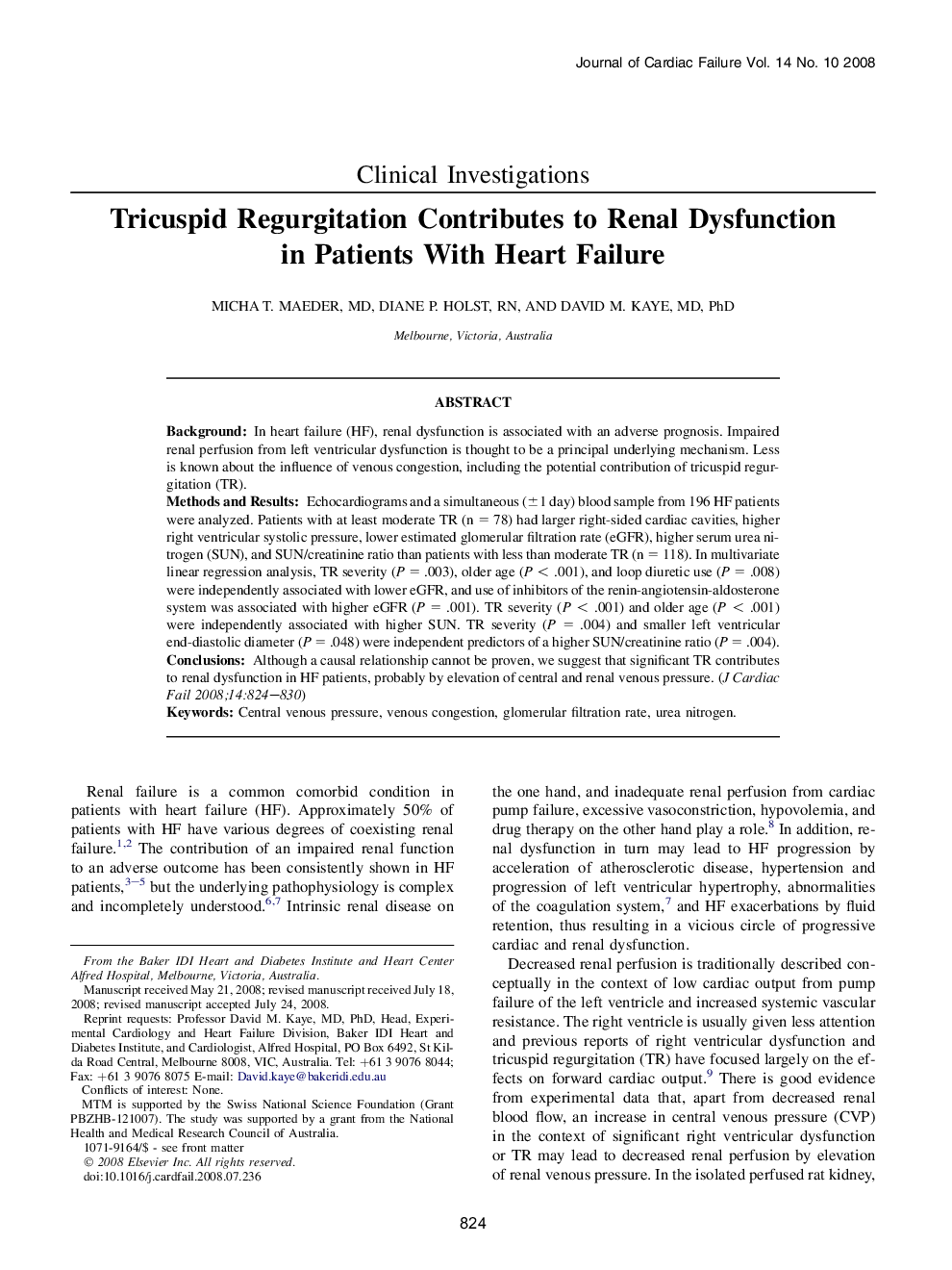| Article ID | Journal | Published Year | Pages | File Type |
|---|---|---|---|---|
| 2960766 | Journal of Cardiac Failure | 2008 | 7 Pages |
BackgroundIn heart failure (HF), renal dysfunction is associated with an adverse prognosis. Impaired renal perfusion from left ventricular dysfunction is thought to be a principal underlying mechanism. Less is known about the influence of venous congestion, including the potential contribution of tricuspid regurgitation (TR).Methods and ResultsEchocardiograms and a simultaneous (±1 day) blood sample from 196 HF patients were analyzed. Patients with at least moderate TR (n = 78) had larger right-sided cardiac cavities, higher right ventricular systolic pressure, lower estimated glomerular filtration rate (eGFR), higher serum urea nitrogen (SUN), and SUN/creatinine ratio than patients with less than moderate TR (n = 118). In multivariate linear regression analysis, TR severity (P = .003), older age (P < .001), and loop diuretic use (P = .008) were independently associated with lower eGFR, and use of inhibitors of the renin-angiotensin-aldosterone system was associated with higher eGFR (P = .001). TR severity (P < .001) and older age (P < .001) were independently associated with higher SUN. TR severity (P = .004) and smaller left ventricular end-diastolic diameter (P = .048) were independent predictors of a higher SUN/creatinine ratio (P = .004).ConclusionsAlthough a causal relationship cannot be proven, we suggest that significant TR contributes to renal dysfunction in HF patients, probably by elevation of central and renal venous pressure.
